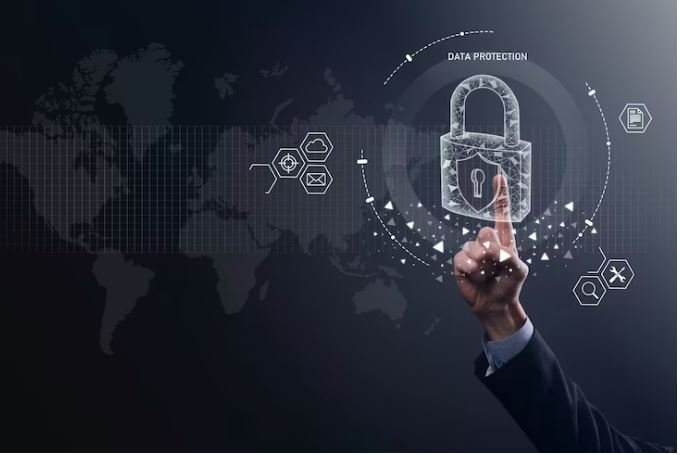I. Introduction
A. Overview of ISO 27001 Certification
ISO 27001 Certification is an internationally recognized standard for information security management systems (ISMS). It provides a framework for organizations to establish, implement, maintain, and continually improve their information security processes. ISO 27001 Certification helps organizations identify and mitigate security risks, safeguard sensitive data, and ensure compliance with regulatory requirements.
B. Importance of Information Security in Today’s Digital Landscape
In today’s interconnected world, information security is paramount. With the proliferation of digital technologies and the increasing threat of cyberattacks, organizations face numerous risks to their sensitive data and intellectual property. ISO 27001 Certification helps address these challenges by establishing robust information security controls, enhancing resilience against cyber threats, and fostering trust among stakeholders.
II. Understanding ISO 27001 Certification
A. What is ISO 27001 and Its Significance?
ISO 27001 is an international standard that specifies the requirements for establishing, implementing, maintaining, and continually improving an information security management system (ISMS). It provides a systematic approach to managing sensitive information, ensuring confidentiality, integrity, and availability. The significance of ISO 27001 lies in its ability to help organizations identify and mitigate information security risks, comply with legal and regulatory requirements, and enhance trust and confidence among stakeholders.
B. Key Principles and Objectives of ISO 27001
The key principles of ISO 27001 revolve around risk management, continual improvement, and alignment with business objectives. It emphasizes the importance of assessing information security risks, implementing appropriate controls, and regularly reviewing and updating security measures to address evolving threats. The objectives of ISO 27001 include establishing a systematic approach to information security, ensuring confidentiality, integrity, and availability of information, and fostering a culture of security awareness and responsibility among employees.
C. Benefits of ISO 27001 Certification
ISO 27001 Certification offers numerous benefits to organizations, including improved information security posture, enhanced risk management capabilities, and increased confidence among customers, partners, and regulators. It demonstrates commitment to information security best practices, enhances organizational resilience against cyber threats, and provides a competitive advantage in the marketplace. ISO 27001 Certification also helps organizations streamline compliance with legal and regulatory requirements, reduce security incidents and associated costs, and safeguard the reputation and trust of the organization.
III. The ISO 27001 Certification Process
A. Steps Involved in Obtaining ISO 27001 Certification
The ISO 27001 Certification process involves several key steps to establish, implement, and certify an effective Information Security Management System (ISMS).
- Initiation: Begin by securing top management commitment and appointing a project manager to oversee the certification process.
- Gap Analysis: Conduct a thorough assessment of existing information security practices to identify gaps and determine readiness for ISO 27001 Certification.
- Scope Definition: Clearly define the scope of the Information Security Management System (ISMS), specifying the organization’s operations and assets covered by the certification.
- Risk Assessment: Perform a comprehensive risk assessment to identify and evaluate information security risks and vulnerabilities.
- Risk Treatment: Develop and implement risk treatment plans to address identified risks, selecting appropriate controls and mitigation measures.
- Documentation: Prepare necessary documentation, including an Information Security Policy, risk register, and procedures for implementing and maintaining the ISMS.
- Implementation: Implement the ISMS according to documented procedures and controls, integrating security measures into business processes.
- Internal Audit: Conduct internal audits to assess the effectiveness of ISMS implementation, identify areas for improvement, and ensure compliance with ISO 27001 requirements.
- Certification Decision: Based on the findings of the certification audit, the certification body will make a decision regarding ISO 27001 Certification.
IV. Compliance and Risk Management with ISO 27001
A. Achieving Regulatory Compliance
ISO 27001 provides a framework for achieving regulatory compliance by establishing robust information security controls and practices. Organizations can align their ISMS with relevant legal and regulatory requirements, ensuring that data protection laws, industry standards, and contractual obligations are met. By demonstrating compliance with ISO 27001, organizations can streamline regulatory audits, mitigate legal risks, and build trust with stakeholders.
B. Implementing Effective Risk Management Strategies
Effective risk management is a core component of ISO 27001, helping organizations identify, assess, and mitigate information security risks. By implementing risk management strategies outlined in the standard, organizations can proactively identify potential threats, vulnerabilities, and impacts on their information assets. This enables them to prioritize risk mitigation efforts, allocate resources effectively, and minimize the likelihood and impact of security incidents.
C. Enhancing Data Protection Measures
ISO 27001 enhances data protection measures by establishing systematic controls and safeguards to ensure the confidentiality, integrity, and availability of information. Organizations can implement encryption, access controls, data classification, and incident response procedures to protect sensitive data from unauthorized access, modification, or disclosure. By enhancing data protection measures, organizations can safeguard their reputation, mitigate financial losses, and maintain the trust of customers, partners, and regulatory authorities.
V. Industries and Sectors Impacted by ISO 27001 Certification

A. Information Technology and Cybersecurity
In the rapidly evolving landscape of information technology and cybersecurity, ISO 27001 Certification holds significant importance. IT companies, software developers, and cybersecurity firms can benefit from ISO 27001 Certification by demonstrating their commitment to protecting sensitive data, mitigating cyber threats, and ensuring the reliability of their systems and services. ISO 27001 helps IT organizations establish robust information security management systems, enhance risk management practices, and comply with industry regulations and standards.
B. Finance and Banking
The finance and banking sector deals with vast amounts of sensitive financial data, making information security a top priority. ISO 27001 Certification is essential for banks, financial institutions, and fintech companies to safeguard customer information, prevent data breaches, and maintain trust and confidence in the financial system. By implementing ISO 27001, organizations in this sector can strengthen their cybersecurity posture, enhance risk management capabilities, and demonstrate compliance with regulatory requirements such as GDPR and PCI DSS.
C. Healthcare and Pharmaceuticals
In the healthcare and pharmaceutical industries, protecting patient data and confidential medical information is paramount. ISO 27001 Certification enables healthcare providers, hospitals, pharmaceutical companies, and medical device manufacturers to establish stringent information security controls, ensure the confidentiality of patient records, and comply with healthcare regulations such as HIPAA and GDPR. ISO 27001 helps organizations in these sectors mitigate data breaches, enhance data integrity, and maintain patient trust and privacy.
D. Government and Public Sector
Government agencies, municipalities, and public sector organizations handle vast amounts of sensitive information and provide critical services to citizens. ISO 27001 Certification is essential for government entities to protect classified data, secure government networks, and enhance cybersecurity resilience against cyber threats and attacks. By implementing ISO 27001, government organizations can strengthen their information security posture, improve risk management practices, and demonstrate a commitment to protecting national security and citizen privacy.
VII. Future Trends and Developments in Information Security
A. Emerging Technologies and Threats
As technology continues to advance, new threats emerge alongside innovative solutions. Emerging technologies such as artificial intelligence, quantum computing, and Internet of Things (IoT) present both opportunities and challenges for information security. Organizations must stay vigilant against evolving cyber threats such as ransomware, phishing, and insider threats while leveraging cutting-edge technologies to enhance their cybersecurity posture.
B. Evolving Regulatory Landscape
The regulatory landscape governing information security is constantly evolving to keep pace with technological advancements and emerging threats. Governments and regulatory bodies worldwide are introducing stricter data protection laws, compliance requirements, and cybersecurity standards to address growing cybersecurity concerns. Organizations must stay abreast of regulatory changes and ensure compliance with applicable laws and regulations to avoid penalties and reputational damage.
C. Opportunities for Advancement
Despite the challenges posed by emerging threats and regulatory changes, there are ample opportunities for advancement in information security. Organizations can leverage technologies like blockchain, biometrics, and secure multi-party computation to enhance data protection, improve risk management practices, and strengthen resilience against cyber threats. Additionally, the increasing demand for skilled cybersecurity professionals presents opportunities for career growth and development in the field of information security.
VIII. Conclusion
A. Recap of Key Points
Throughout this discussion, we’ve explored the significance of ISO 27001 Certification in ensuring robust information security management systems (ISMS) and protecting sensitive data from cyber threats. We’ve covered the fundamental principles of ISO 27001, the certification process, and its impact on various industries.
B. Final Thoughts on the Significance of ISO 27001 Certification
ISO 27001 Certification serves as a hallmark of excellence in information security, demonstrating an organization’s commitment to safeguarding data, managing risks, and complying with regulatory requirements. It enhances organizational resilience against cyber threats, fosters trust among stakeholders, and strengthens competitive advantage in the digital marketplace.
C. Encouragement for Readers to Pursue ISO 27001
As organizations increasingly rely on digital technologies and face evolving cyber threats, ISO 27001 Certification is more relevant than ever. I encourage readers to consider pursuing ISO 27001 Certification to strengthen their information security practices, protect their assets, and mitigate risks effectively. By implementing ISO 27001, organizations can enhance their cybersecurity posture, build resilience against cyber threats, and demonstrate a commitment to protecting valuable information assets.





